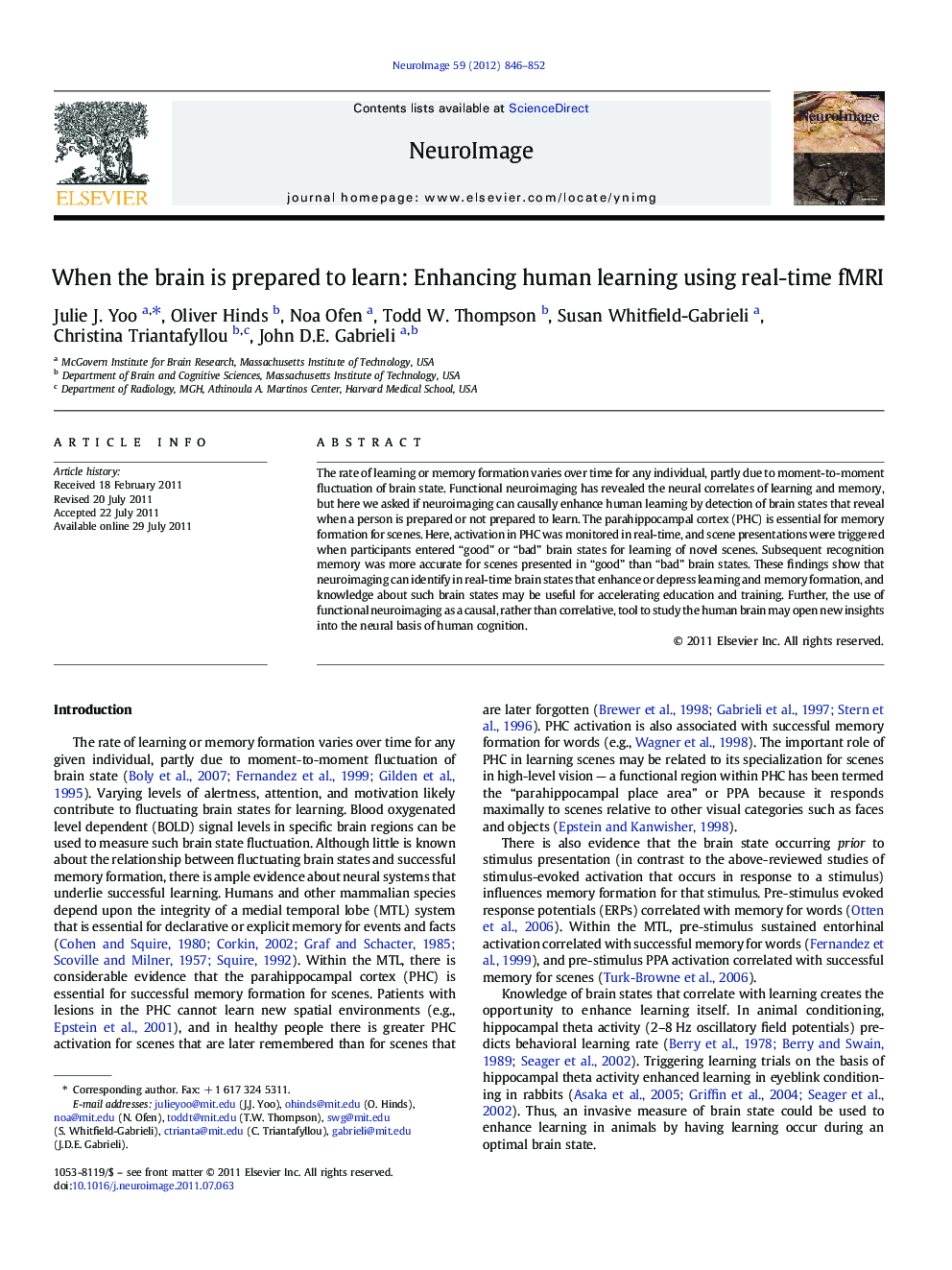| Article ID | Journal | Published Year | Pages | File Type |
|---|---|---|---|---|
| 6033374 | NeuroImage | 2012 | 7 Pages |
The rate of learning or memory formation varies over time for any individual, partly due to moment-to-moment fluctuation of brain state. Functional neuroimaging has revealed the neural correlates of learning and memory, but here we asked if neuroimaging can causally enhance human learning by detection of brain states that reveal when a person is prepared or not prepared to learn. The parahippocampal cortex (PHC) is essential for memory formation for scenes. Here, activation in PHC was monitored in real-time, and scene presentations were triggered when participants entered “good” or “bad” brain states for learning of novel scenes. Subsequent recognition memory was more accurate for scenes presented in “good” than “bad” brain states. These findings show that neuroimaging can identify in real-time brain states that enhance or depress learning and memory formation, and knowledge about such brain states may be useful for accelerating education and training. Further, the use of functional neuroimaging as a causal, rather than correlative, tool to study the human brain may open new insights into the neural basis of human cognition.
⺠Discovered human brain states of preparedness to learn new information. ⺠Used real-time fMRI of measured brain states to present new information. ⺠Controlled human learning by presenting information during good brain states. ⺠Transformed fMRI from a correlational to a causal method to study the human brain.
